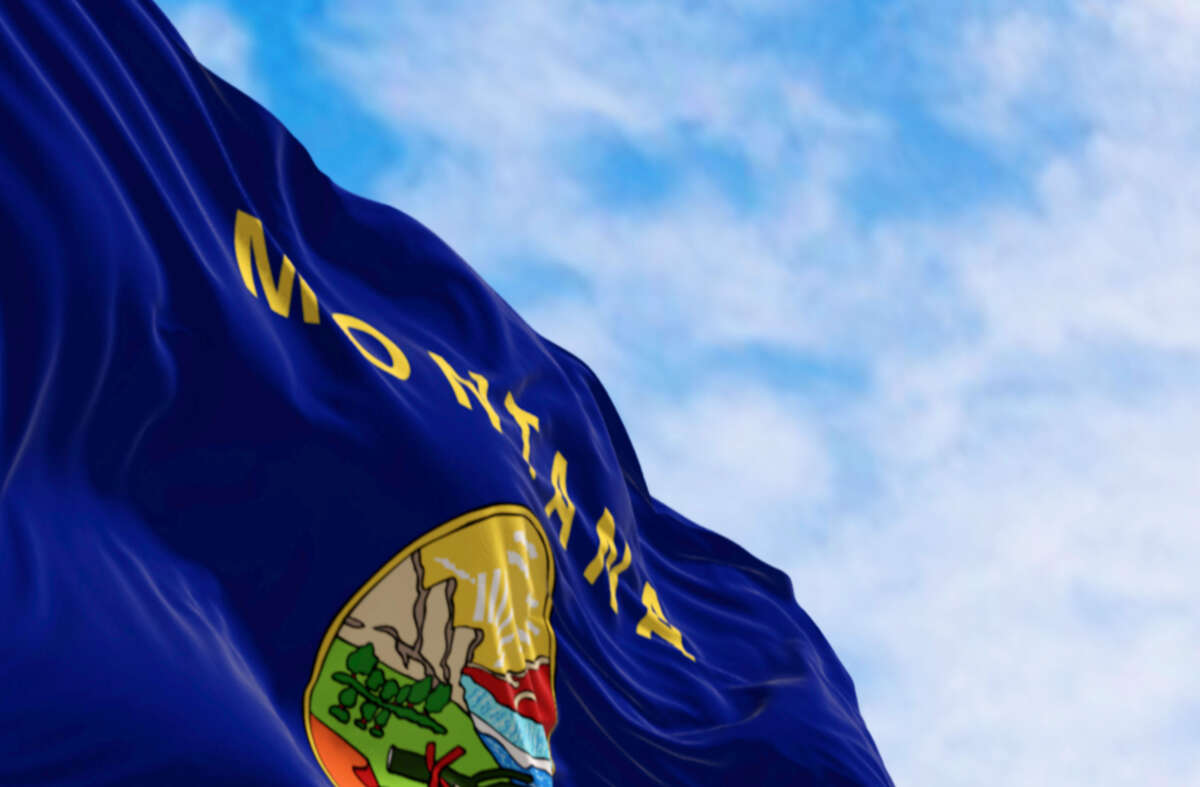On Wednesday, the Montana State Supreme Court ruled to keep intact a lower court’s decision from last year, which found that a law banning state lawmakers from considering greenhouse gas emissions when permitting fossil fuel projects was unconstitutional.
The lower court ruling was made in late 2023, after 16 young petitioners sued the state on the grounds that a state law allowing such permits to be considered violated the Montana constitution’s provision on ensuring a “clean and healthy environment…for present and future generations.” Republican lawmakers sued to have that order rejected, and in July, the state Supreme Court heard oral arguments on the matter.
In a 6-1 decision, the court found that the original ruling was sound, and that the petitioners’ rights had been violated. Chief Justice Mike McGrath authored the opinion of the court, stating that the “right to a clean and healthful environment and environmental life support system includes a stable climate system.”
Notably, within the first trial in 2023, the state refused to present any climate science whatsoever in favor of keeping the Montana law in place.
Rikki Held, one of the young petitioners in the case, lauded the action from the state Supreme Court.
“This ruling is a victory not just for us, but for every young person whose future is threatened by climate change,” Held said.
Nate Bellinger, a lawyer with Our Children’s Trust, one of the organizations that represented the youth, also celebrated the case’s outcome. The ruling “affirmed the constitutional rights of youth to a safe and livable climate,” Bellinger said.
While the ruling is a huge win for young people and climate advocates, it does not require the state to take proactive steps to address the crisis, such as passing legislation to mitigate the effects of climate change. Still, the Montana Supreme Court’s decision means that the permitting process must take into consideration how a particular project may contribute to the rise in greenhouse gases, providing a mechanism for residents to sue if the state ignores the standard.
While its numbers have lessened somewhat over the past few years, Montana’s output of carbon emissions has more than doubled since 1970. Only 14 states in the U.S. have seen emission rates go down during that time frame, while the remaining 36 states have seen emissions numbers increase.
Angry, shocked, overwhelmed? Take action: Support independent media.
We’ve borne witness to a chaotic first few months in Trump’s presidency.
Over the last months, each executive order has delivered shock and bewilderment — a core part of a strategy to make the right-wing turn feel inevitable and overwhelming. But, as organizer Sandra Avalos implored us to remember in Truthout last November, “Together, we are more powerful than Trump.”
Indeed, the Trump administration is pushing through executive orders, but — as we’ve reported at Truthout — many are in legal limbo and face court challenges from unions and civil rights groups. Efforts to quash anti-racist teaching and DEI programs are stalled by education faculty, staff, and students refusing to comply. And communities across the country are coming together to raise the alarm on ICE raids, inform neighbors of their civil rights, and protect each other in moving shows of solidarity.
It will be a long fight ahead. And as nonprofit movement media, Truthout plans to be there documenting and uplifting resistance.
As we undertake this life-sustaining work, we appeal for your support. Please, if you find value in what we do, join our community of sustainers by making a monthly or one-time gift.
